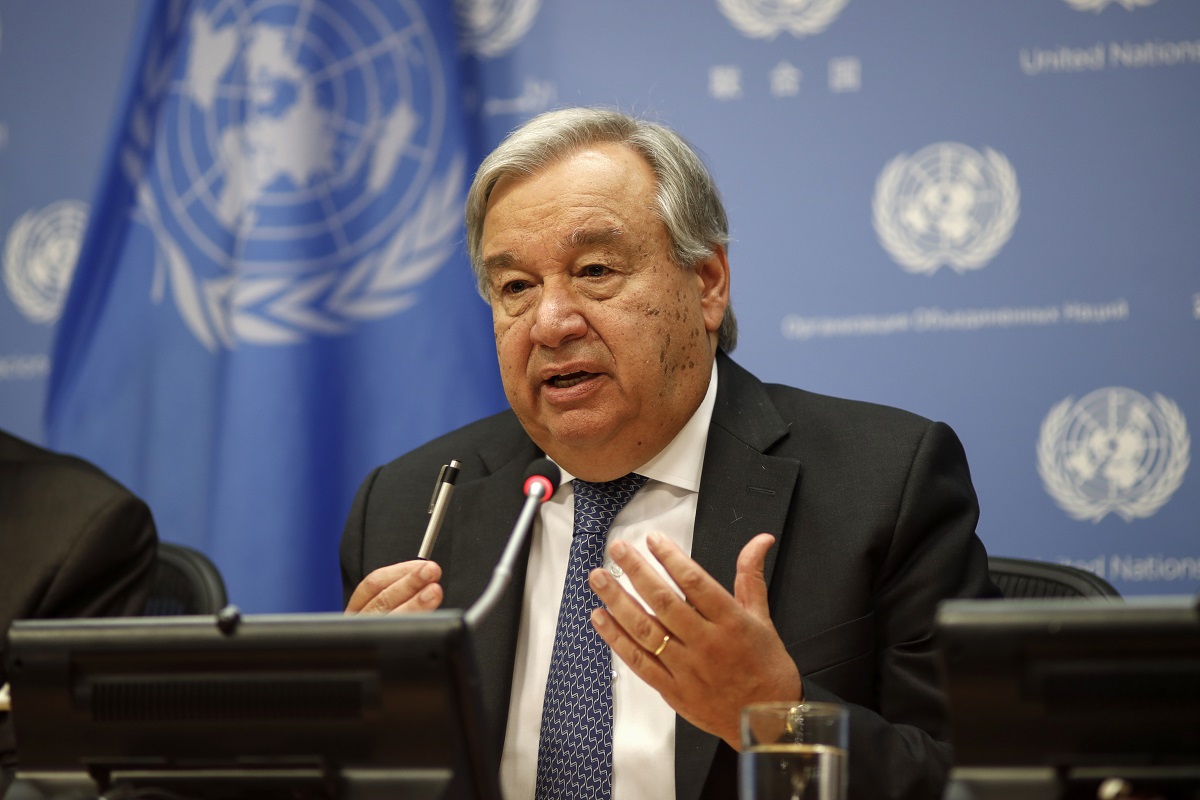UN Secretary-General Antonio Guterres has said that the outcome of the UN Climate Change Conference in Glasgow, Scotland, or COP26, is not enough.
“The approved texts are a compromise. They reflect the interests, the conditions, the contradictions, and the state of political will in the world today. They take important steps. But unfortunately, the collective political will was not enough to overcome some deep contradictions,” Guterres was quoted as saying by Xinhua news agency on the conclusion of COP26 on Saturday.
“Science tells us that the absolute priority must be rapid, deep, and sustained emissions reductions in this decade, specifically, a 45-percent cut by 2030 compared to 2010 levels. But the present set of Nationally Determined Contributions, even if fully implemented, will still increase emissions this decade on a pathway that will clearly lead us to well above 2 degrees by the end of the century compared to pre-industrial levels,” he said.
He welcomed the agreement between the US and China in Glasgow that pledges to accelerate action to reduce emissions in the 2020s.
To help lower emissions in many other emerging economies, there is a need to build coalitions of support including developed countries, financial institutions, those with the technical know-how. This is crucial to help each of those emerging countries speed the transition from coal and accelerate the greening of their economies, he said.
“I want to make a particular appeal for our future work in relation to adaptation and the issue of loss and damage,” said Guterres.
“Adaptation isn’t a technocratic issue, it is life or death. Protecting countries from climate disasters is not charity. It is solidarity and enlightened self-interest.”
“We have another climate crisis today. A climate of mistrust is enveloping our globe. Climate action can help rebuild trust and restore credibility. That means finally delivering on the 100-billion-dollar climate finance commitment to developing countries. No more IOUs. It means measuring progress, updating climate plans every year and raising ambition … And it means, beyond the mechanisms already set out in the Paris Agreement, establishing clear standards to measure and analyse net-zero commitments from non-state actors.”
He said COP26 created some building blocks for progress: commitments to end deforestation, to drastically reduce methane emissions, to mobilize private finance around net-zero emissions.
And the texts today reaffirm resolve toward the 1.5-degree goal, boost climate finance for adaptation, recognize the need to strengthen support for vulnerable countries suffering from irreparable climate damage. And for the first time they encourage international financial institutions to consider climate vulnerabilities in concessional financial and other forms of support, including Special Drawing Rights. And finally, they close the Paris rule book with agreement on carbon markets and transparency, he noted.
The UN chief remained cautiously optimistic about the future.
“Success or failure is not an act of nature. It’s in our hands. The path of progress is not always a straight line. Sometimes there are detours. Sometimes there are ditches. As the great Scottish writer Robert Louis Stevenson said: ‘Don’t judge each day by the harvest you reap, but by the seeds that you plant.’ We have many more seeds to plant along the path. We won’t reach our destination in one day or one conference. But I know we can get there. We are in the fight of our lives,” he said.
“COP27 starts now.”












